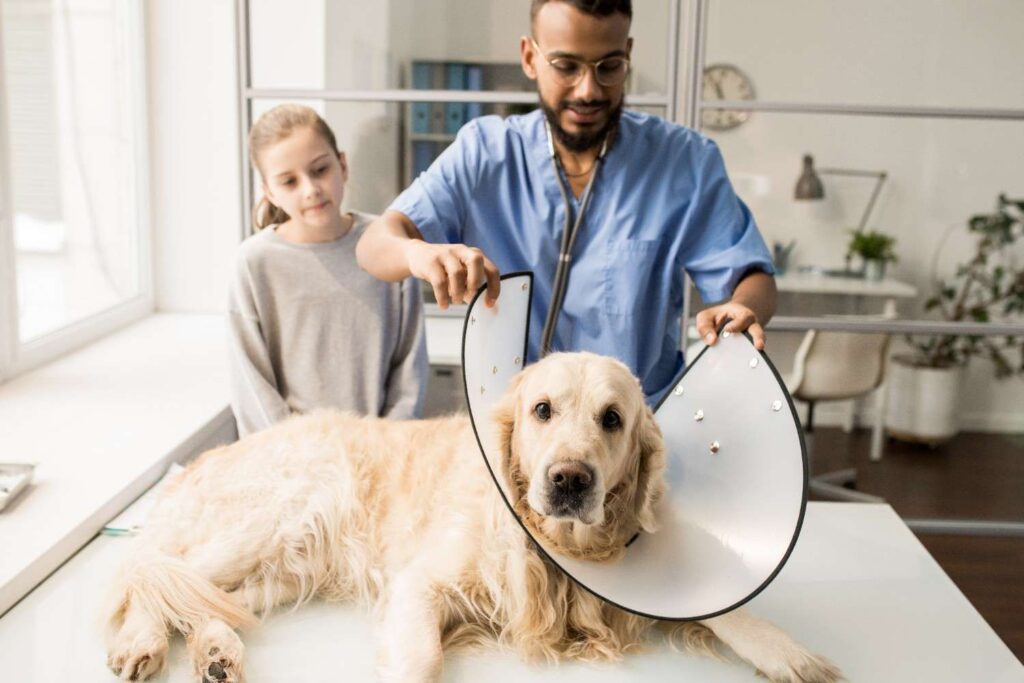The number of pet parents in the US is on the rise. As of 2024, 66% of houses in the US have a pet. With this rapid increase in pet partnerships, pet insurance is becoming necessary. According to current data, the insurance market stood at USD 9.65 billion in 2023. It is expected to grow at 11.9% from 2024 to 2031. Two significant factors driving this growth are increasing veterinary costs and pet parents’ decisions to spend on their pet’s health.

Several factors influence the cost of pet care, including accidents and health issues. Pet insurance helps pet parents bear this cost, allowing them to provide excellent care and medical attention to their pets. As the insurance market grows, pet parents must be informed about what it is, its value, what it covers, and if it is worth it.
Types of Pet Insurance Coverage
There are three types of insurance plans pet parents must know of. These plans offer different coverage options.
- Accident-only coverage: Accident-only coverage: Accident-only insurance plans do not cover illnesses. This plan covers the costs of diagnostic tests, surgeries, consultation fees, and medication bills associated with an injury.
- Accident and illness coverage: Accident and illness coverage covers an unforeseen injury and health issue. The comprehensive insurance plan includes the expenses of diagnostic tests, treatments, surgeries, medical bills, alternative therapies, and consultations.
- Wellness Plan: Wellness insurance for pets is an add-on to other insurance plans. It covers the cost of routine check-ups, vaccinations, and flea treatment, which are often excluded in basic plans.
The True Value of Pet Insurance
While accidents and emergencies are the main worries, insurance covers more than simply shattered bones and swallowed socks. Here’s how it can improve your pet’s health throughout their lifetime:
Financial Protection:
Pet health care insurance covers the costs of unplanned vet visits. It covers routine checkups and emergency care so that pet parents can go for the best treatment for their furry friends without thinking of the financial bounds. The insurance lets pet parents rest assured that their pets receive top-notch care.
Comprehensive Coverage:
Pet health insurance covers comprehensive costs, from allergies to surgeries. It includes consultation fees, diagnostic tests, medicines, emergency surgeries, and hospital stays. It helps pet parents get the best care for their pets, no matter the price.
Affordable Premiums:
Pet health insurance is usually available at a reasonable and affordable price. It significantly simplifies things for hobbyist pet parents by turning veterinary care expenses into a manageable monthly installment. In simpler words, it means you put some money in a piggy bank every month instead of putting it all at once. If your pet falls sick in an emergency, you can reimburse your credit card or savings account and pay for the necessary health care.
Customizable Plans:

Pet insurance companies offer several customizable plans. Individualized plans are highly personalized and custom-made to meet pet parents’ requirements and wishes. These insurance plans include basic coverage plans, which provide everyday coverage, and full coverage plans, which cover unforeseen accidents and health conditions.
Peace of Mind:
Sudden shocks like diseases and accidents that can make the owners anxious about their pet companions are the main reasons for the stress faced by every pet parent. Pet health care insurance coverage provides peace of mind to pet parents in case of adversities. Having that financial backup is crucial in focusing on your pet’s health. This is because you avoid stressing over where you can get the money when you only need to treat the pet.
Access to Quality Care
Every pet parent wants to provide world-class care to their furry buddy without counting the bills. Pet insurance plans help pet owners provide the finest veterinary and expensive medical therapies. This ensures your pet receives the best possible care, making it feel on top of the world.
Protection Against Emergencies
Accidents and emergencies can show up on your doorstep without notification. In that case, you need to be prepared; top-rated pet insurance does just that. In addition to wellness visits, it also assists and protects pet parents from the financial burden of unforeseen accidents and emergency treatment fees, surgery costs, or hospitalization.
Coverage for Chronic Conditions
The best pet insurance helps pet parents cover the treatment costs of chronic conditions such as diabetes, arthritis, heart disease, and cancer. These conditions can be expensive and also take a toll on your pocket, so insurance coverage is essential.
Lifelong Coverage
Lifetime health insurance for pets is an extensive insurance plan that covers pet care costs for the rest of your pet’s life. This ensures our pets have access to top medical facilities and treatment options from puppyhood to old age. Lifelong coverage protects pets against accidents, diseases, and other health issues.
How Does Pet Insurance Work?

Expenses for pet care are reimbursed by insurance in the form of a claim that requires you to pay the vet at the clinic and then file the insurance claim for this service. Some insurance companies pay your pet care provider directly, lowering the cost you pay out of your pocket. When selecting an insurance plan, pet parents must focus on three things: deductible, reimbursement percentage, and annual limit to choose. These three factors affect the premium and the maximum cost recovery.
Before reimbursement, you must meet the deductible. Then, the pet insurance providers reimburse the cost based on the percentage you select, typically 70-90%, and the policy’s annual limit. These two factors set the amount you can claim. The insurance claiming procedure may vary from company to company but usually has these five steps:
- Schedule an appointment with the vet.
- Get your pet checkout out at the vet.
- Pay the veterinary bill.
- File an insurance claim online or on your insurance company’s mobile app and attach the vet bill.
- Once your claim is approved, you will receive your reimbursement.
What Type of Pets Does Pet Insurance Cover?
Pet parents often wonder if their insurance will cover their furry or feathery friend. Insurance typically covers dogs and cats along with various animals like birds and reptiles and small pets like ferrets and rabbits. However, the coverage plans can vary according to the company’s policies.
Most pet health care insurance plans include dogs and cats, guaranteeing to meet different needs related to their breeds, ages, and sizes. This includes the cost of sudden vet visits, unforeseen accidents and emergencies, and expensive medical treatment. Insurance plans also cover birds, reptiles, and other small pets. However, their rates may vary based on age, health condition, and size.
Things Pet Insurance Doesn’t Cover
Usually, an insurance plan covers several aspects of pet care, but there are a few things they exclude from their plans. Here are some everyday things that pet insurance companies exclude from their coverage plans:
- Pre-existing medical conditions
- Pregnancy
- Breeding
- Grooming costs
- Behavioral training
- DNA testing
- Experimental Treatments
- Injuries caused by fighting, cruelty, or neglect
- Preventive measures, including immunization, dental care, or flea treatment
Before selecting a pet care insurance, pet parents must read its limitations thoroughly and gather accurate information.
Is Pet Insurance Worth It?

Planning and deciding the budget for an insurance agency is essential. It helps pet parents consider the unexpected circumstances and the financial burden they bring. High surgical or hospital payments can quickly drain your savings, resulting in significant debt. This ultimately adds to the pet parent’s stress during emergencies. Pet insurance reduces financial concerns by covering emergency and routine care costs and provides peace of mind. With insurance, you can finance treatments without worry, allowing you to concentrate entirely on your pet’s health rather than financial concerns.

0 Comments